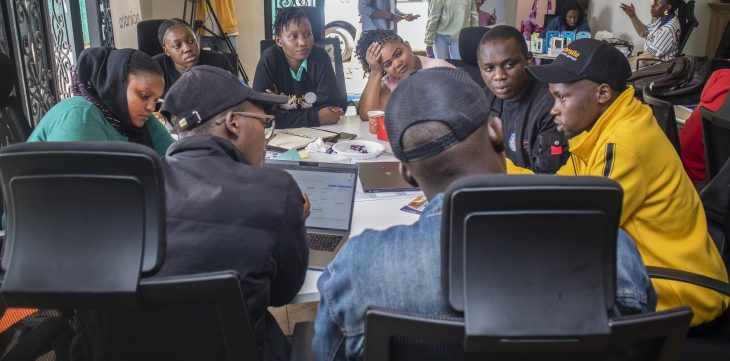Tech giants are increasingly looking for tech talent in Africa, where the number of developers reached 716,000 last year, up 3.8% from 2020, according to Google.
In the last six months, Microsoft and Amazon have been on a recruitment drive that came along with enticing offers including relocation to their hubs in the U.S. and Europe, endearing themselves to the small but growing talent pool amid tough competition from other tech giants like Google, as well as startups.
This demand for African developers is expected to continue, buoyed by the effects of the Great Resignation, which led employers to search for new talent elsewhere, and as tech behemoths like Google, Oracle and Visa expand their operations in Africa.
Yet as demand rises, the number of new developers entering the market is disproportionately small, mainly because traditional education institutions in most African countries have been slow to revamp their courses to keep up with job market demands and the fast-evolving world of technology.
On the other hand, the gap between demand and supply has unequivocally steered the launch of new developer schools and propelled the growth of existing ones in recent months, many of which are gaining the attention of global venture capitalists.
According to data from the Big Deal, so far this year alone, nearly 10 African edtech startups focused on reskilling nontechnical people with technical skills have raised funding to fuel their growth amid rising demand for the training they offer. These alternative schools are serving a need that can’t be bridged by traditional training institutions.
“We can’t build enough physical universities to meet this demand nor do we have the faculty talent locally, so we need to embrace online learning in a big way,” Ope Bukola, Kibo School co-founder and CEO, told TechCrunch, adding that Africa already has the untapped capacity to meet the world’s demand for tech talent.
“Education is traditionally a very slow industry, but we need the sector to move much faster to create the supply of qualified tech talent to meet the growing demand,” Bukola said.
VC funding
Kibo School is among the edtech companies to attract funding so far this year, having received $2 million in seed funding in June to offer STEM degrees and short courses to youth in Africa. Kibo’s announcement followed Tunisia-based GoMyCode’s disclosure that it had raised an $8 million Series A to scale its operations across Africa.
In the first half of this year, Kenya’s Moringa School said it had received an undisclosed amount of pre-Series A funding from French development agency Proparco to expand to Nigeria and Ghana and introduce new courses. Egyptian edtech startup Sprints also raised $1.2 million, while Nigeria-based AltSchool received $1 million in pre-seed funding. Sayna and 9jacodekids attracted capital, too.
This year’s growth follows the 2021 funding boom that saw several edtechs in the developer-training space raise significant funding, among them South Africa’s Hyperion Dev and iXperience, which raised $3.5 million and $2.5 million, respectively.
Nigeria-based Semicolon and Decagon also raised seed funding worth $1.2 million and $1.5 million, respectively.
All of the aforementioned startups are catering to the needs of developers who continue to opt for an informal training path. According to the Google Africa Developer Ecosystem 2021 report, 53% of developers in Africa last year settled on informal training options, including bootcamps and online learning.
So popular are these schools that AltSchool received 9,200 applications for its inaugural call early this year but could only admit 4,200. Kibo School received 1,800 applications but only signed up a handful because it aims for intimate cohorts. This means that demand for the training is huge, and these schools are not able to meet it, an indicator of a market in its infancy.
Both Kibo and AltSchool offer short courses — up to one year in length. Kibo also recently introduced a three-year computer science degree.
These alternative schools are so popular among young people that they’ve become a lifeline to the burgeoning tech ecosystem in Africa, owing to their forward-looking courses and ability to churn talent fast. They are likely to continue pulling in VC dollars.
“The demand for technical talent is at an all-time high, and companies are looking outside of their primary market to hire talent,” AltSchool co-founder and CEO Adewale Yusuf told TechCrunch. “This [training offered at AltSchool] is a significant opportunity for African countries like Nigeria and Ghana, among others, as English is the primary language, and the time zone is favorable.”
